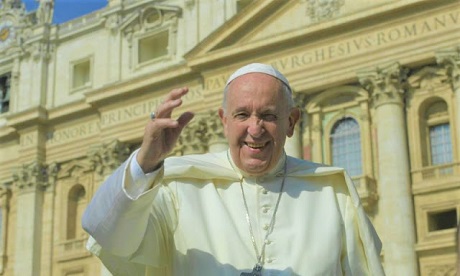Pope Francis’s reforms to the Vatican Bank and attempts to restore its ethical credentials include new statutes.
On Saturday Francis signed the new statutes and approved other changes to bolster the reforms that have cleaned out the once scandal-ridden institution.
The reforms were initially launched by Francis’s predecessor Pope Benedict.
Until Benedict and Francis sought to curb the bank’s activities, it had been been caught in cases of corruption, tax evasion, embezzlement, money laundering and real estate fraud.
Some of the cases involved top officials and prelates.
Andrea Tornielli, the Vatican’s editorial director, says the new statutes are “an important step in the process of adhering to the best international standards”.
Although the bank has opened its books to external auditors over the past few years, it was mandated only to undertake internal audits. The new statutes make external audits obligatory.
The new rules also ban bank employees, most of whom are non-clerics, from holding consultancies or other roles with outside institutions.
In addition, the number of members on the bank’s lay board of supervisors, which is made up of internationally known financial experts, is increased from five to seven. No member of the Vatican bank is on this board.
Increasing the number of lay board members will strengthen its role while reducing the power of the five-member supervisory commission of cardinals.
For decades before reforms were implemented, the Vatican bank was embroiled in numerous financial scandals. People with no right to have accounts at the bank opened them and used them for illicit purposes, with help from corrupt bank insiders.
The bank’s stated purpose is to manage funds for the Church, Vatican employees, religious institutes, and Catholic charities.
During the past six years, hundreds of Vatican bank accounts have been closed.
An on-site inspection of the bank by the Financial Information Authority (the Vatican’s controller), last year found the bank was complying with anti-money laundering legislation. The subsequent report said the inspection outcome was “substantially positive”.
In 2017, Italy put the Vatican on its “white list” of states with cooperative financial institutions, ending years of mistrust.
The same year, Moneyval, a monitoring body of the Council of Europe, gave Vatican reforms a mostly positive evaluation, particularly those carried out at the bank.
Source
